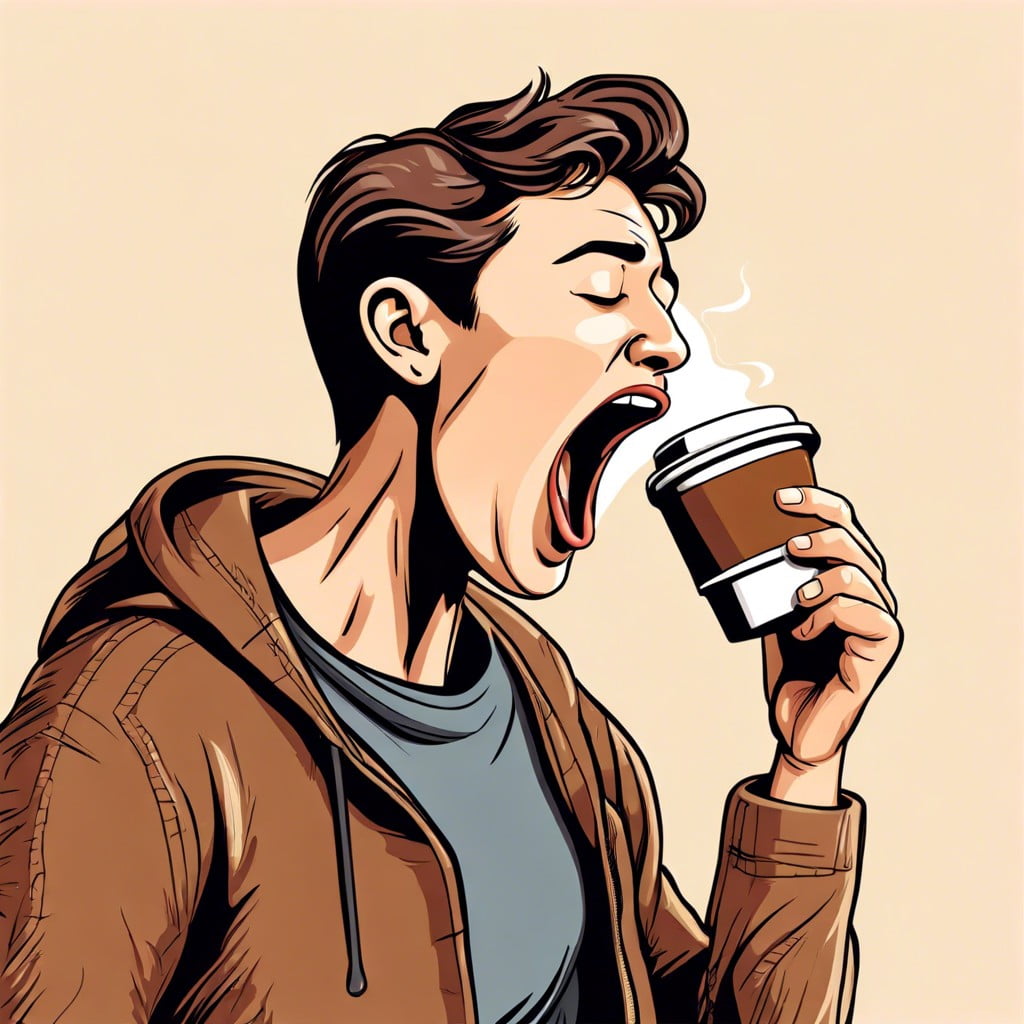Discover why coffee might make you feel tired if you have ADHD and understand the science behind this unexpected reaction.
Overview of ADHD and Its Impact On the Body’s Energy Levels

Attention Deficit Hyperactivity Disorder (ADHD) influences how energy is managed in the body. Individuals with ADHD often experience erratic energy levels, which can manifest as bursts of hyperactivity followed by moments of extreme fatigue. This inconsistency is partly due to how the brain regulates attention and alertness.
- Neurochemical differences: ADHD is linked with imbalances in neurotransmitters like dopamine and norepinephrine, which play crucial roles in focusing and maintaining energy levels.
- Regulation challenges: People with ADHD might struggle to regulate their physical and emotional responses to stimuli. This dysregulation can contribute to uneven energy distribution throughout the day.
- Impact of hyperfocus: When someone with ADHD becomes deeply focused or ‘hyperfocused,’ they may not notice physical signs of tiredness until they’ve significantly depleted their energy reserves.
Understanding these dynamics is vital in managing energy levels and navigating day-to-day activities effectively.
How Caffeine Affects People With ADHD Differently
Caffeine often acts as a stimulant that can either sharpen focus or increase anxiety, which varies widely among individuals with ADHD. Rather than the typical energy boost it grants many, caffeine can sometimes cause an opposite, paradoxical reaction in those with ADHD. This is due to the unique way stimulants interact with dopamine levels in the brain, which are already regulated differently by ADHD medications like Ritalin or Adderall.
In some cases, the introduction of caffeine into the system can further disrupt dopamine regulation, leading to increased fatigue rather than alertness. This unusual reaction is critical to understand for those managing ADHD, as it can subtly undermine daily functioning and energy levels.
By considering these points, those affected can better manage their symptoms and choose suitable alternatives to caffeine for maintaining energy throughout the day.
The Science Behind Caffeine’s Interaction With ADHD Medication
Caffeine and ADHD medications both stimulate the central nervous system, yet they do so in distinct ways. Typically, stimulant medications increase the availability of neurotransmitters like dopamine and norepinephrine, which help improve concentration and reduce impulsivity and hyperactivity.
When caffeine is consumed, it temporarily blocks adenosine receptors in the brain. Adenosine is a chemical that promotes sleep and relaxation, so blocking its receptors can lead to feelings of alertness. However, for some with ADHD, this blocking action can interfere with stimulant medications. The interaction might amplify side effects such as nervousness, jitters, and difficulties sleeping.
Additionally, caffeine can potentially quicken the absorption rate of certain medications, altering their expected efficacy. This alteration can lead to inconsistency in how the medication helps manage ADHD symptoms throughout the day.
Understanding these interactions is crucial for managing symptoms effectively while maintaining balanced energy levels. Always consult healthcare providers before making adjustments to how you manage ADHD, especially when it involves mixed stimulants like caffeine and prescription medications.
Caffeine’s Short-term Boost and Subsequent Energy Crash
Caffeine initially blocks adenosine, a brain chemical that makes you feel sleepy. This typically results in a burst of energy and alertness. However, as caffeine’s effects wear off, the adenosine build-up can lead to increased fatigue.
For individuals with ADHD, these swings in energy can be more pronounced. The high energy phase might feel exhilarating but is usually followed by a significant drop in alertness. This “crash” might feel even more intense if ADHD medications, which also impact neurotransmitter levels, are in the mix.
Keeping hydration in check and integrating moderate physical activities during the day can counterbalance the energy dip and stabilize mood swings. Sipping water frequently maintains hydration and helps mitigate the harsh lows of caffeine.
Alternatives to Caffeine for Managing ADHD Symptoms and Maintaining Energy Levels
Exploring caffeine-free options can be beneficial for those with ADHD looking to sustain energy throughout the day. Here are a few alternatives:
- Physical Activity: Incorporating regular exercise helps improve focus and decrease impulsivity. Activities like yoga and tai chi also promote relaxation and mental clarity.
- Healthy Diet: Balanced meals with a good mix of protein, complex carbs, and fats can stabilize energy levels. Foods rich in omega-3 fatty acids, like fish and walnuts, are particularly good for brain health.
- Mindfulness and Meditation: These practices encourage mental steadiness and can reduce ADHD symptoms by enhancing focus and self-regulation.
- Structured Breaks: Short, planned breaks throughout the day can prevent burnout and improve productivity. During these intervals, engaging in a quick walk or a relaxation exercise can help rejuvenate the mind.
- Sleep Hygiene: Ensuring consistent and restful sleep each night plays a critical role in how energetic and attentive one feels each day. Good sleep practices are vital for cognitive function and mood stability.
By integrating these strategies into daily routines, individuals with ADHD may find improved energy levels without relying on caffeine.